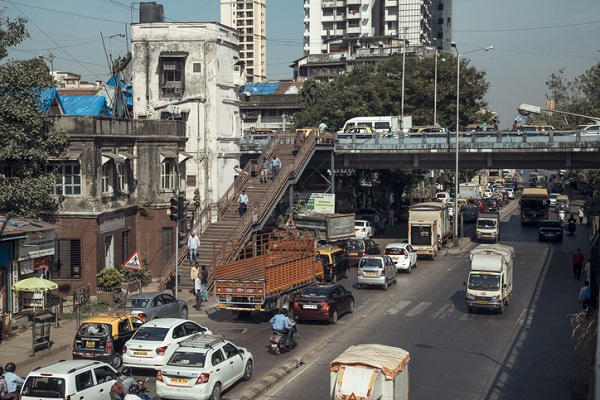.png)
India’s Cities are Not Broken. They’ve been Abandoned
India’s cities have been undone by the collapse of political accountability and the acceptance of dysfunction as ordinary. Without structural reform and genuine local democracy, urban India will remain trapped in a cycle of promises, paralysis and silent abandonment.


Dr. Srinath Sridharan is a Corporate Advisor & Independent Director on Corporate Boards. He is the author of ‘Family and Dhanda’.
July 16, 2025 at 2:50 AM IST
Indian cities no longer suffer from a lack of plans, funds or policy frameworks. Most of our cities have rich municipal coffers. But same cannot be said of the civic infrastructure or quality of its services delivery to the citizens.
The cities have been undone by the collapse of political and policy accountability and the quiet burial of moral urgency over time. What citizens endure today cannot be attributed to mere bureaucratic inefficiency. It is no better than abandonment, and worse, the normalisation of that abandonment as civic destiny.
Every morning, millions wake to cities that promise economic opportunity but extract an ever-growing price in dignity and daily fatigue. Our urban spaces generate wealth, yet deny basic liveability norms. They sustain aspiration, yet test the patience and resilience of those who call them home. In this silent contradiction lies the civic tragedy of our time: that the very cities which fuel ambition corrode faith in governance.
Beneath the digital dashboards, vision documents and high-profile inaugurations, the lived reality remains unaltered. Public health centres stand overcrowded and understaffed. Emergency care remains beyond reach or means for many. Heatwaves intensify, water grows scarcer, and unregulated construction steadily wipes out green cover. Roads freshly laid are torn open within weeks, footpaths vanish into encroachments, and each monsoon brings predictable paralysis. Citizens have learnt not to protest, but to adapt—accepting dysfunction as the routine cost of urban life.
The decay is deeper than potholes and traffic jams. Corruption finds shelter where accountability is absent. Civic contracts are awarded with procedural transparency, yet quality collapses by the time projects reach the street. Budgets get extensions and cost escalations mid-project, while complaints go unanswered or unacknowledged. The citizen who demands better is labelled a nuisance, confronted by indifference or outright hostility.
Across metropolitan centres and mid-tier towns alike, the middle class—despite bearing the fiscal weight through taxes—receives the least in return. Their children’s schools are hemmed in by illegal parking and noise. Commutes are shaped by taxi and auto-rickshaw mafias that flourish under local political patronage. Private water tanks, private security and neighbourhood emergency groups emerge, not as signs of community strength, but as quiet acknowledgements of systemic retreat.
Local transport systems, once lifelines, now stand as daily reminders of administrative neglect. Overcrowded buses, metro lines that miss last-mile connections and choking arterial roads make mobility an ordeal rather than a right. Encroachments on drains, pavements and parks are neither exception nor accident—they endure through tacit complicity between vested interests and those entrusted with enforcement. The result is an ecosystem where dysfunction becomes self-reinforcing.
Year after year, grand narratives of transformation resurface. New trains are flagged off while older suburban lines remain unsafe. Beautification projects gather media coverage even as essential drainage work remains neglected. Data dashboards multiply, while open nullahs and crumbling or no footpaths remain in place. Ambition exists in abundance, yet accountability remains conspicuously absent.
The underlying governance crisis is rooted in fragmented responsibility. A single city answers to municipalities, development authorities, utility boards, police and state departments—each with its own budget, timeline and insulation from consequence. Files travel easily between offices, but responsibility never settles. Planning becomes episodic rather than continuous, and those empowered to plan often live far from the consequences of their decisions.
The test of a city’s governance is not in its announcements or blueprints, but in whether daily life is dignified, safe and predictable. Municipalities must move beyond functioning as administrative arms of state governments and become genuine centres of local democracy, backed by fiscal autonomy and political accountability. Citizens must know whom to question and whom to blame.
Cities are not merely aggregations of roads, flyovers and fibre optics. They are living, breathing ecosystems of memory, identity and shared purpose. When they decay, the damage is not only to infrastructure but to the social fabric and the promise of citizenship itself.
By 2036, over 600 million Indians will live in urban areas. The weight this will place on infrastructure, already strained, is immense. Add climate volatility, unplanned migration and ecological stress, and the cost of inaction grows not incrementally but exponentially.
Yet those of us in the middle years, carrying the aspirations of our children and the needs of ageing parents, find ourselves trapped. It is too late to start anew elsewhere, too complex to uproot, and too tiring to keep resisting. We stay, not because of hope, but because habit leaves us with no real choice. And so we watch the slow unraveling of the cities where we built our lives—not because we accept it, but because there is no recourse left.
Writing about this decay often feels like imposition that we went through as school children, as if such a repetition alone might redeem neglect. Or like the believer’s chant, hoping divine grace will step in where governance has failed. Yet even fatigue must not be mistaken for consent. Citizens do not ask for utopia—they ask only for cities that work, governed with honesty, competence and accountability. Cities must remember they exist to serve those who build them, not merely those who rule or profit from them. Until then, urban India will remain trapped in its cycle of asphalt, announcements and abandonment. But who really bothers, or worries, or cares about solving these ?



